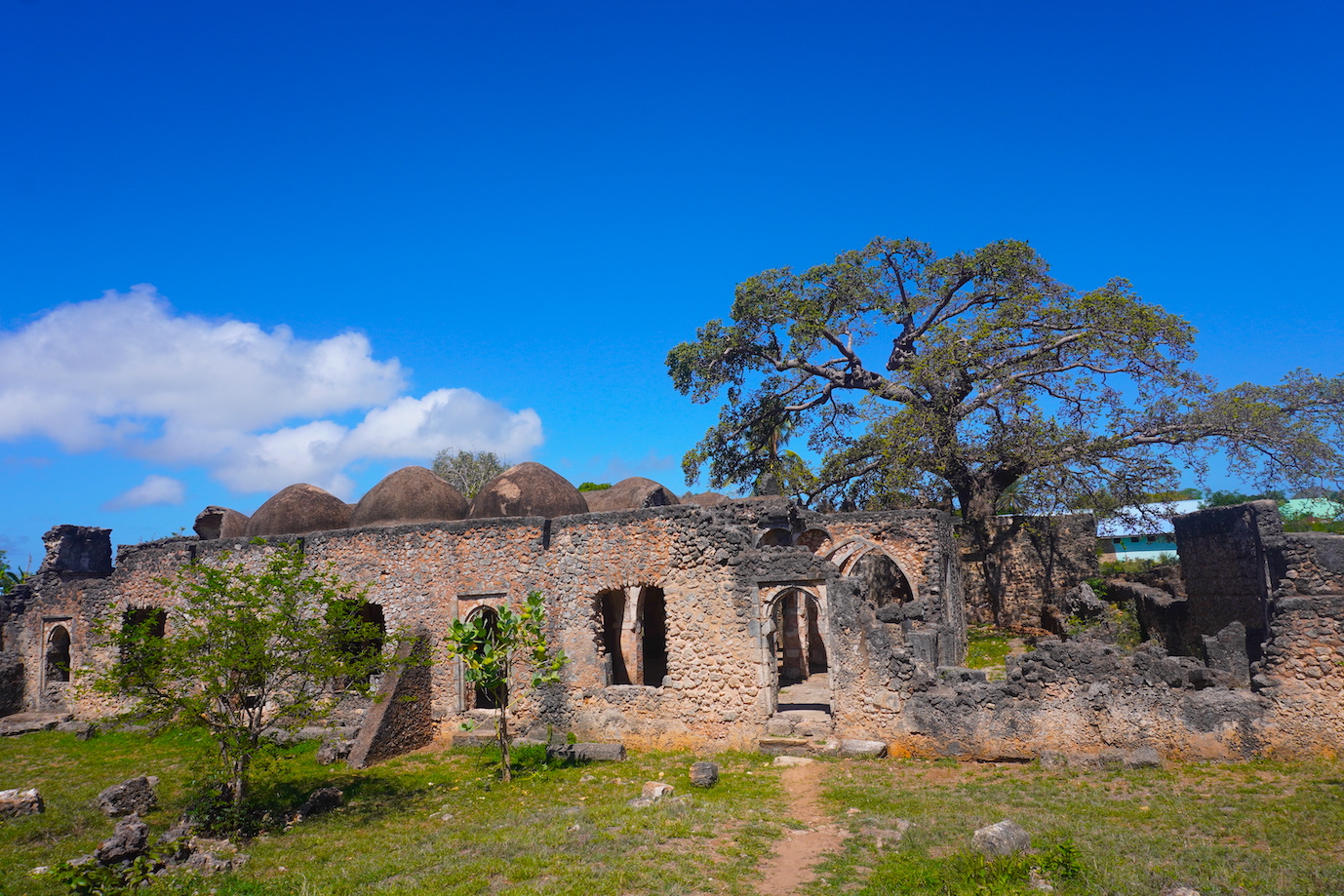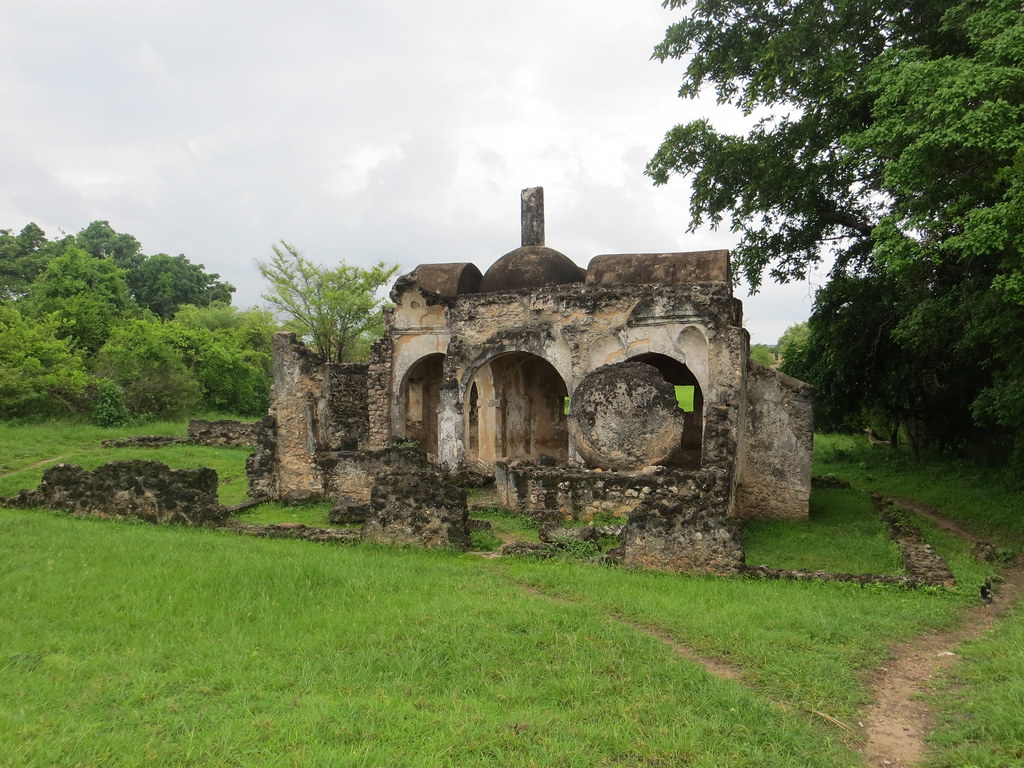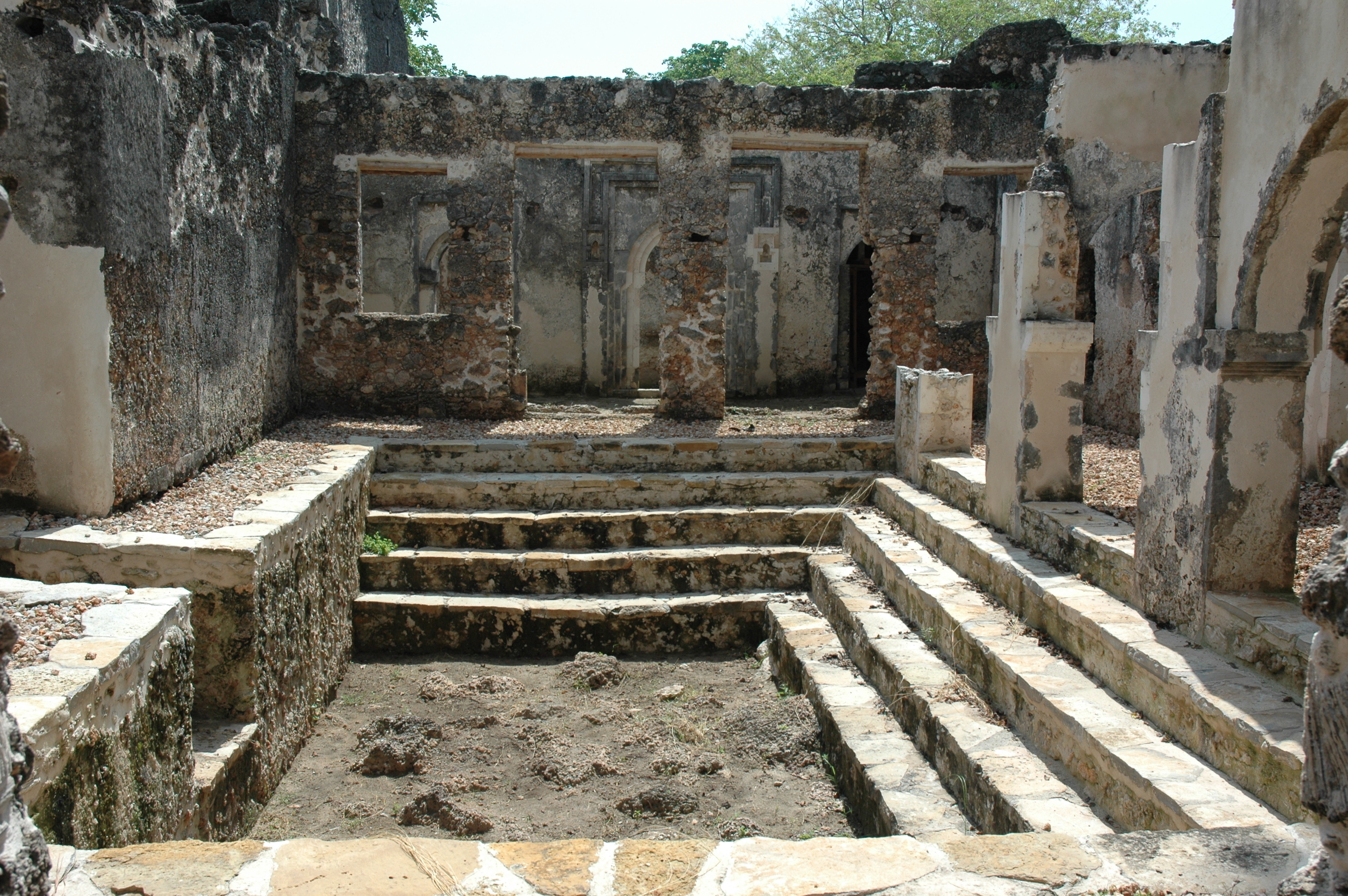
Journey to the southern coast of Tanzania to uncover the magnificent ruins of Kilwa Kisiwani and Songo Mnara, UNESCO World Heritage sites. Once a dominant medieval trading city-state controlling gold and ivory routes, Kilwa's remaining grand mosques, palaces, and fortifications offer a profound glimpse into the golden age of Swahili civilization.
Kilwa's strategic location made it a vital link in the Indian Ocean trade network, connecting the African interior (rich in gold and ivory) with Arabia, Persia, India, and even China.
Key Ruins & Sites:
- Great Mosque of Kilwa (Kilwa Kisiwani): Dating back to the 11th century with major expansions in the 13th-15th centuries, it was one of the largest mosques in sub-Saharan Africa, notable for its domed and vaulted roofing.
- Husuni Kubwa Palace (Kilwa Kisiwani): A vast 14th-century palace complex built by Sultan al-Hasan ibn Sulaiman, covering several acres with over 100 rooms, courtyards, and a large octagonal swimming pool. Its ruins overlook the sea and are truly impressive.
- Husuni Ndogo (Kilwa Kisiwani): A smaller, fortified enclosure, possibly used for commercial or military purposes.
- Gereza (Fort) (Kilwa Kisiwani): An Omani Arab fort built in the early 19th century on the site of an earlier Portuguese fortification, using materials from other ruins.
- Makutani Palace (Kilwa Kisiwani): A later, 18th-century palace, enclosed by a defensive wall.
- Songo Mnara Ruins: Located on a neighboring island, these 14th-15th century ruins include five mosques, numerous domestic houses with courtyards, and a palace complex, offering a more complete picture of a Swahili stone town. Many consider Songo Mnara's preservation even better in some aspects. I found the layout of the town remarkably clear.
Historical Context: The Kilwa Sultanate reached its zenith between the 13th and 15th centuries, controlling the gold trade from Sofala (modern Mozambique) and minting its own currency. Its decline began with the arrival of the Portuguese in the early 16th century.
Modern Kilwa Masoko: The nearby mainland town of Kilwa Masoko serves as the base for visiting the ruins. It's a small, relatively quiet town with a few guesthouses and a local market. The primary focus for visitors is undoubtedly the historical sites.
Conservation: The ruins of Kilwa Kisiwani and Songo Mnara are fragile. Efforts are ongoing to conserve these important monuments. Visiting responsibly and supporting local conservation initiatives is crucial.

Apollo's Recommendation
“Kilwa Kisiwani is a place that whispers tales of sultans and global trade. My top recommendation is to dedicate a full day to explore both **Kilwa Kisiwani** and the nearby **Songo Mnara** ruins with a knowledgeable local guide. On Kilwa Kisiwani, the sheer scale of the **Great Mosque** and the sprawling **Husuni Kubwa palace** (with its octagonal bathing pool!) will transport you back centuries. The guide will explain the intricate history and the significance of each structure. Songo Mnara, though smaller, feels more intimate with its well-preserved houses and public spaces. The dhow trip to the islands is part of the adventure. I always advise visitors to wear good walking shoes and bring plenty of water, as exploring these sites involves a fair bit of walking under the sun. The sense of discovery here is immense.”
About the Author
APApollo
Swahili Coast Historian & Archaeology Enthusiast
Former park ranger with over 7000 days of safari experience
Kilwa Kisiwani & Songo Mnara: Ruins of a Mighty Swahili Sultanate



Frequently Asked Questions about Kilwa Kisiwani
Location
Ready to explore this highlight?
Contact us to plan your perfect safari experience that includes a visit to this amazing destination.
Ready to Experience Tanzania?
Browse our safari tours to start planning your adventure.
View Safari Tours